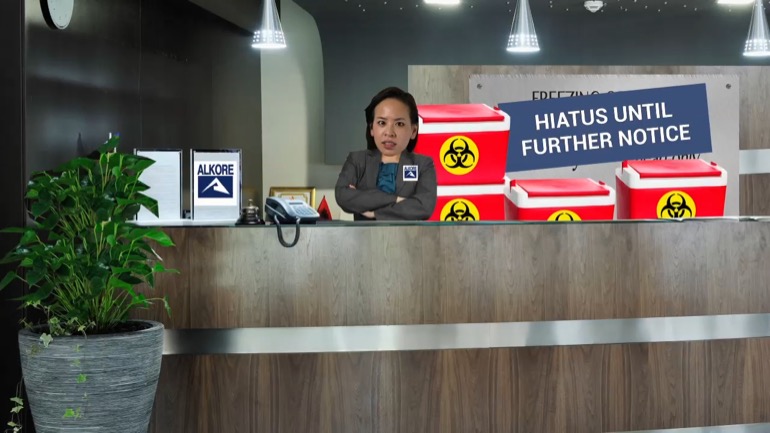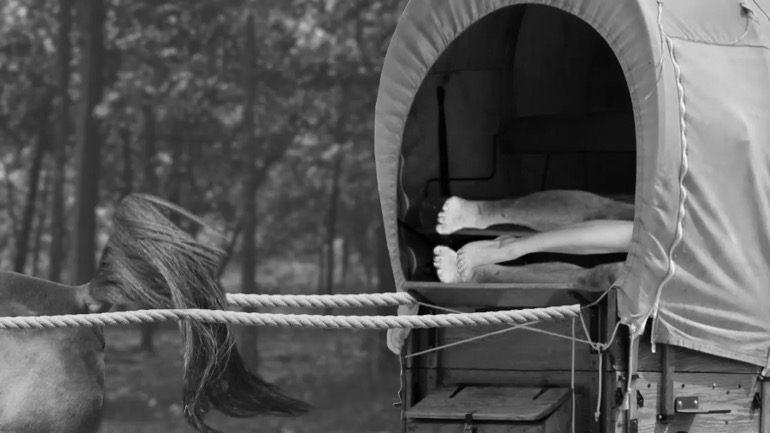ShmoopTube
Where Monty Python meets your 10th grade teacher.
Search Thousands of Shmoop Videos
Cost Accounting Videos 27 videos
What is a Cost: Cost Versus Expense? Cost and expense are pretty similar terms when looking at traditional definitions but they’re a little diffe...
How can unit fixed costs mislead the misled? Unit fixed costs can be misleading because the fixed cost per unit decreases as production increases;...
What is Differential Analysis? Differential analysis is a strategy used to make the best decision. Possible choices are compared to determine which...
Cost Accounting: What is Predatory Pricing? 1 Views
Share It!
Description:
What is Predatory Pricing? Predatory pricing happens when companies set prices really low to drive their competitors out and attempt to create a monopoly. It’s illegal for a variety of reasons, including the measures they must take in order to be able to get their prices so low, like using illegal production strategies (working too many hours without adequate compensation, things like that).
Transcript
- 00:00
And finance Allah Shmoop What is predatory pricing Let's pricing
- 00:09
below cost Hoping to drive your competition out of business
- 00:13
like you're the Predator you're willing to get sliced and
- 00:17
kicked and punched a bit knowing full well that the
- 00:20
sweet sweet juice of penguin du jour will be all
Full Transcript
- 00:23
the sweeter when it's being you know guzzled well Why
- 00:26
or at least how does this work Well think about
- 00:29
the greatest retailer in the world the pre Amazon It
- 00:32
was this soon to be little company called Walmart which
- 00:35
is now dying in largely the same way it killed
- 00:38
the small mom and pop store Well for fifteen years
- 00:41
Amazon had no profits literally none It's sold product at
- 00:45
a loss and made up for the losses by selling
- 00:47
customer data selling ad space selling other information technology services
- 00:52
on its Web network and so on It did not
- 00:55
make money from selling books Well technically Amazon used predatory
- 00:59
pricing kind of sort of to take most of the
- 01:01
retail dollar in the country Well why was Amazon not
- 01:05
called out for the quote Felony unquote This represents well
- 01:08
because it was beating up on Big Seamus including Wal
- 01:11
Mart So like how would the dinosaur government come down
- 01:15
on this little Sora pod for beating up on this
- 01:18
huge T Rex Yeah it didn't make sense Well until
- 01:21
the store a pod became big enough to just stop
- 01:23
on the T Rex or uh you know do this
- 01:27
but spin the clock back to the nineteen thirties Yeah
- 01:29
that's the American landscape actin which was dotted with tens
- 01:33
of thousands of small stores like this one the country
- 01:37
store They had maybe a thousand different items crammed into
- 01:40
the small building The owner bought them from a sub
- 01:43
distributor fifty miles away and had things delivered by post
- 01:47
or by rail every week and bought like eight sets
- 01:49
of gloves at a time Then along came Wal Mart
- 01:52
with its megastore system where one store covered acres place
- 01:56
just in between eight small towns It was enough volume
- 02:00
available to buy tow warrant visitors driving in there You
- 02:04
know crappy cars in the forties and fifties to spend
- 02:07
all day shopping the four hundred thousand stock keeping units
- 02:11
or skews our escape use that a typical Wal Mart
- 02:14
store had And because WalMart ordered gloves in bundles of
- 02:18
ten thousand units from the manufacturer will the pricing it
- 02:22
could command was half or less of what the small
- 02:25
mom and pop store owner could buy them for And
- 02:28
in fact Walmart often retailed items for a price less
- 02:32
than what the mom and pop store could even buy
- 02:35
them for Like there'd be no profit for Mom and
- 02:38
or Pop So the mom and pop stores were all
- 02:40
driven out of business And ironically it's the same way
- 02:43
that Barnes and Noble and Borders and the others drove
- 02:45
out small book stores You know Mom and pop bookstores
- 02:49
before Amazon then destroyed Barnes and Noble and Borders and
- 02:52
the other was all this predatory like Did WalMart actively
- 02:55
seek to bankrupt the mom and pop stores so they
- 02:59
could well own a kind of monopoly which would then
- 03:02
in theory be able to raise prices forever with impunity
- 03:05
There may be Prove it Good luck in court of
- 03:08
law You gotta prove that it was accused of predatory
- 03:11
pricing anyway as family business after family business clothes and
- 03:15
a lot of arm waving in Nina Nina Ring and
- 03:18
the public read stories tearfully written by journalists who were
- 03:21
employees of large media companies about how terrible it wass
- 03:25
You know this family in that family who'd run their
- 03:28
store for one hundred fifty years now had to close
- 03:30
because Walmart ate their lunch Did the public stop shopping
- 03:34
at Wal Mart and then return to the much higher
- 03:36
priced much lower value mom and pop store products in
- 03:40
order to really show those evil predator people at Wal
- 03:43
Mart a thing or two about how American culture works
- 03:46
in supporting the little guy The underdog the downtrodden No
- 03:50
America is a capitalist country We vote with our dollars
- 03:53
So when predatory pricing activity happens it's kind of a
- 03:56
double edged sword For a short period of time Consumers
- 03:59
benefit by having amazing value given to them prices at
- 04:02
such low levels sponsored by the company dumping them and
- 04:06
having losses to essentially by market share for themselves in
- 04:10
the future But then what All the competitors were driven
- 04:13
out of business Well then in theory the seller has
- 04:15
a monopoly like WalMart kind of did at least locally
- 04:19
for a long time The consumer then pays handsomely for
- 04:22
everything with little or no alternate buying options But in
- 04:26
practice that almost never happens because competitors aire lurking behind
- 04:30
rocks pretty much everywhere And this type of activity happens
- 04:33
all the time in technology A given country wants to
- 04:36
own say mobile semiconductor manufacturing ability For the next decade
- 04:40
their factory costs five billion dollars there Country makes the
- 04:44
country's banking system is backing them with insanely cheap debt
- 04:49
as that factory puts toe work hundreds of thousands of
- 04:52
that country's local workers So that country then sells chips
- 04:55
for eleven cents each or at least per unit Or
- 04:58
however you want to do the math when it cost
- 05:00
that country fourteen cents to make him And the big
- 05:03
existing makers can't produce them for less than eighteen cents
- 05:07
a unit Well after a while those pennies add up
- 05:10
and there's just one ship maker who can then sell
- 05:13
their wares for thirty cents a unit and more than
- 05:16
make up for those predatory pricing Three sent a unit
- 05:19
losses they suffered in the beginning That's the theory anyway
- 05:22
for how predatory pricing works for how it should work
- 05:26
At least if you're a predator and if that makes
- 05:28
you happy well then you should clap your hands or 00:05:31.838 --> [endTime] try to anyway
Related Videos
GED Social Studies 1.1 Civics and Government
What is bankruptcy? Deadbeats who can't pay their bills declare bankruptcy. Either they borrowed too much money, or the business fell apart. They t...
What's a dividend? At will, the board of directors can pay a dividend on common stock. Usually, that payout is some percentage less than 100 of ear...
How are risk and reward related? Take more risk, expect more reward. A lottery ticket might be worth a billion dollars, but if the odds are one in...































